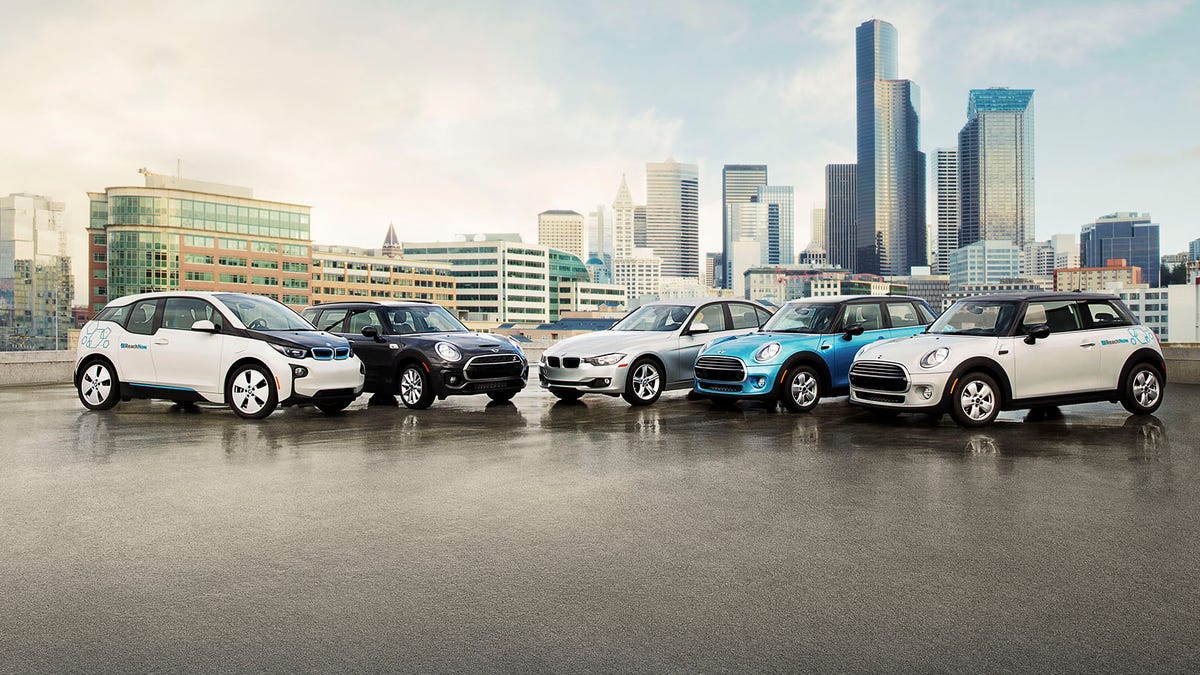ProfitNow: BMW's car-sharing scheme is making money
This helps prove that future ideas for mobility can keep the lights on.

Selling cars is profitable. It's been unclear, however, whether or not other mobility ventures, such as car sharing, can print money for automakers. BMW's venture, ReachNow, lends some credence to the idea that automakers won't be struggling when ownership starts to decline.
ReachNow, which is called DriveNow outside the US, is already profitable, a BMW executive told Automotive News in an interview. "The utilization is two, three, four hours a day -- so that's about four times what the average is," said Ian Robertson, BMW's board member for sales and marketing.
As autonomy and new methods of mobility expand across the globe, there were concerns that automakers might have trouble making money, as fewer people will be interested in buying cars. ReachNow, which sees BMW retaining ownership of its cars while charging folks by the minute, has proven profitable after rolling out in just 12 cities.
According to the interview, Robertson still sees personal ownership as part of the equation. But as technological advances reshape cities -- whether it involves removing roads in favor of adding green space or making greater pushes for public transportation -- there will still be a need for personal transportation. It's up to the automakers to figure out how to capitalize on that, and it appears BMW has figured out at least part of the formula.
Naturally, it's far too early to dust off our hands and call it a job well done. ReachNow and DriveNow exist in just 12 cities, and BMW hand-picked these cities because it thought the program would do well there. Expanding this program, and all that comes with it -- acquiring more cars, setting up partnerships with municipalities, establishing infrastructure -- could offset those profits for years.
Let's look at Uber as an example. While the ride-sharing company was at one point profitable, subsidies to drivers and other factors left the company with a $1.2 billion loss in the first half of 2016. Of course, removing drivers from the equation -- something Uber is anticipating as autonomy grows -- will remedy that to some degree, but Uber's finances are proof that alternate methods of mobility are not guaranteed to print money.
One thing is for sure, though -- automakers aren't about to go quietly into that good night. If there's money to be made off transportation, they will find a way to do so.

